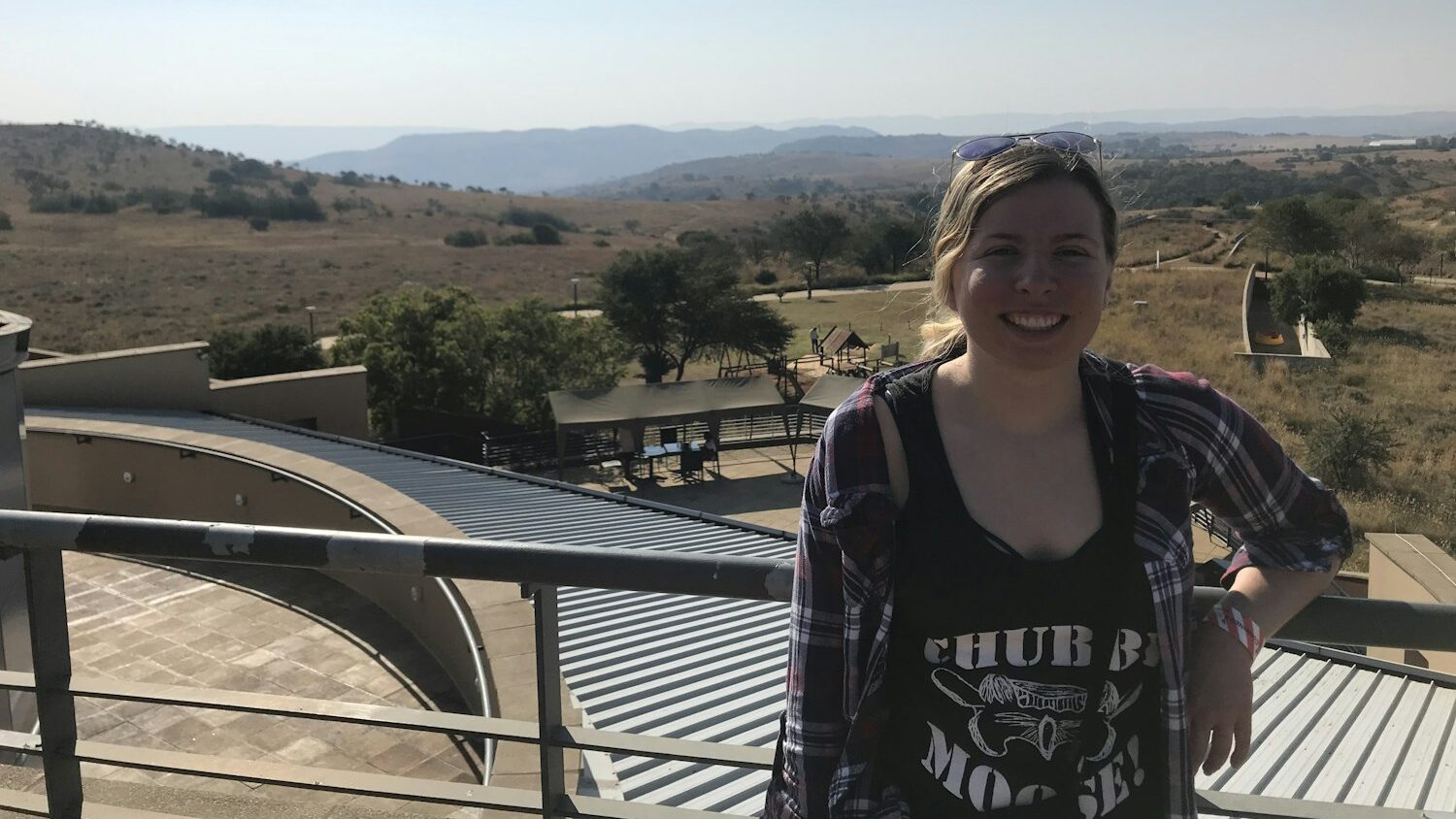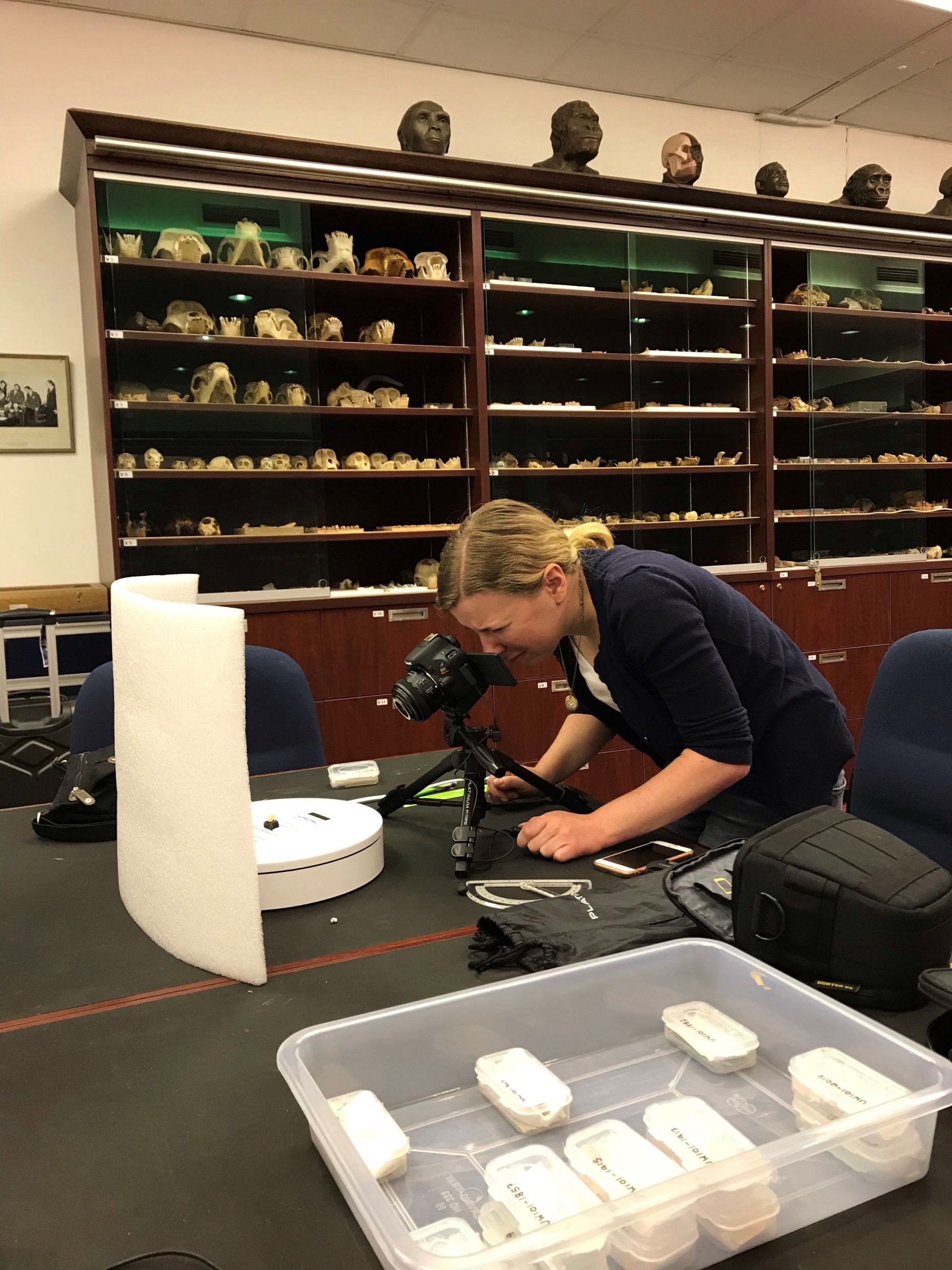Grantee Spotlight

Margaret Furtner is a graduate fellow and PhD candidate at Louisiana State University. Her research is focused on using new technology to explore fossil sites in South Africa’s Cradle of Humankind. In 2024, she received a Leakey Foundation grant for her project, “Remote Fossil Prospecting in the Cradle of Humankind.”
Over the past 100 years, scientists have discovered thousands of fossils in the limestone caves of South Africa’s Cradle of Humankind. However, the process of finding these fossils is incredibly challenging. The vast and rugged terrain and difficult to access cave sites make fossil site prospecting a time-consuming and resource-intensive endeavor. Often, a fair bit of luck is involved as well. But what else is waiting to be discovered? With support from The Leakey Foundation, Margaret Furtner aims to transform this process. Furtner will use machine learning, predictive modeling, and remote sensing technology to create a revolutionary new way to find fossil sites.
From biology to paleoanthropology
Furtner’s academic journey began with her interest in biology. “Ever since I was young, I have had a passion for biological science and learning about the animals and organisms that inhabit the world,” she says. This fascination with life sciences evolved into a specific interest in human origins. “In my opinion, out of all the creatures on the planet, human beings are by far the most fascinating. Our complexities as a species, coupled with our seemingly endless potential to grow technologically and culturally, make us almost anomalous. This is why I wanted to pursue a career attempting to seek answers to the question: Why are we the way we are?”
As she progressed in her graduate studies, Furtner’s interests expanded even more. “I have become increasingly interested in the intersection of anthropology with geography and emerging technologies,” she says. “Studying the landscape within which fossils are found can help us better understand their context. Machine learning can help us make use of vast amounts spatial data that would otherwise be impossible to analyze. By taking this interdisciplinary approach, I hope to support the progression of the field towards innovation and collaboration.”

New tech for old fossils
Margaret Furtner’s PhD research project aims to build a predictive machine-learning model designed for the unique environmental and preservational conditions of fossil sites in the Cradle of Humankind. By using data from geological maps, images that show different types of land and rock features, and LiDAR (a technology that uses laser light to create detailed maps of the ground’s surface), Furtner will feed these variables into prediction models. The goal is to identify patterns between known cave sites and potential new locations for fossil prospecting.
“Predictive models and machine learning can reduce reliance on manual labor and chance by identifying patterns in the land features of known fossil sites and finding other areas with similar characteristics,” Furtner explains. She plans to compare different machine learning methods to determine the best model for predicting cave sites in this region. To ensure accuracy, the project will include field assessments to validate the best-performing model.
Furtner’s study tackles a number of important questions: Which land and environmental factors have the biggest effects on the distribution of caves in the Cradle of Humankind? Can machine learning effectively reduce barriers within anthropology? Her project integrates traditional prospecting with remote sensing and machine learning techniques, transforming the process of fossil site discovery.

A Leakey Foundation grant makes fieldwork possible
Receiving a grant from The Leakey Foundation was a monumental moment for Furtner. “I was extremely excited to learn about my Leakey Foundation grant,” she recalls. “This grant will help me travel to South Africa to conduct the in-field ground truthing portion of my project. This fieldwork is important because while you can use test datasets to evaluate models, this information means nothing if it is not useful in an applied context.”
Furtner’s research introduces a quantitative approach to site discovery that researchers can apply in South Africa, and potentially elsewhere. This approach promises to reduce barriers and improve the efficiency of fossil site discovery for South African paleoanthropology.
Through her work, Furtner aims to expand our understanding of early human environments and evolution. “Human evolution intersects with many fields that impact our daily lives, such as medicine, psychology, global relations, and history,” she says. “Understanding ourselves as both biological and cultural beings is vitally important for our health and wellbeing as a species.”


